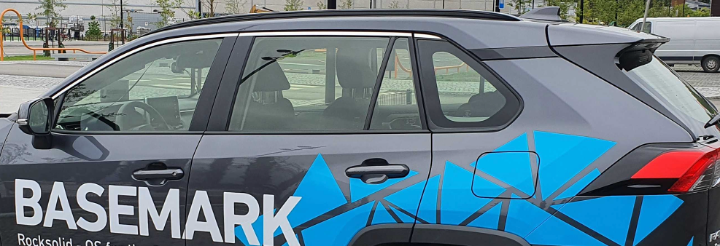
By Dean Takahashi | September 6, 2021 | https://venturebeat.com/2021/09/06/basemark-launches-rocksolid-core-as-os-for-software-defined-cars/
Basemark, a maker of graphics and autonomous car software, has revealed its new operating system for “software-defined vehicles,” dubbed Rocksolid Core.
Rocksolid Core is a licensable end-to-end solution for all car applications that incorporates underlying operating systems, such as automotive-grade Linux, Autosar Classic, and Autosar Adaptive. Rocksolid Core also includes reference applications for human machine interface (HMI), advanced driver assistance systems (ADAS), and autonomous drive applications.
Finland-based Basemark built Rocksolid as a middleware for graphics and compute application development. Automakers have used it to create fancy infotainment dashboards for drivers. It’s optimized for embedded and mission-critical applications, such as autonomous drive, ADAS, and digital instrument clusters.
Basemark CEO Tero Sarkkinen said the company is enabling the future of cars, making it easier to create new car systems while reducing the cost of car computers considerably. Basemark says its Rocksolid Core uses fewer processors than conventional models, resulting in savings in both electronics and software.
“Rocksolid Core is the base for even the most advanced autonomous driving vehicles,” said Sarkkinen in an email to VentureBeat. “It’s not only an OS, but also an advanced new software and hardware architecture as well. This design reduces the amount of processors needed and hence greatly reduces the bill of materials cost in mass production.”
He said the company estimates a savings of $220 per call when compared to the architecture published by Volkswagen. This savings is a huge boon for any car maker, said Sarkkinen.
“The other benefit from the new architecture is that we can visualize data from all car sensors,” he said. “We can make heads up displays much cooler by fusing data from maps, from front radar, and others. This way, the display could eventually make a realistic rendering of the road and environment ahead and highlight a deer lurking in bushes as it could be detected by heat sensing camera.”
Rocksolid Core’s secret sauce is Basemark’s compute and graphics middleware that enables car makers to author their applications independently of the target hardware. This means that if a car maker chooses Nvidia or Qualcomm chips, they don’t have to resort to coding using Nvidia or Qualcomm proprietary software kits.
“Our graphics and compute libraries are able to harness the various accelerators found on those system-on-chips (SoCs) and distribute workload to those accelerators in an optimal way and it enables OEMs to become a little more independent of any particular SoC company,” Sarkkinen said.
Basemark has been working on the tech involved for around six years, and it expanded the scope of the OS this year.
The company isn’t talking about customers yet, but Sarkkinen said the company will demo it on real roads this year. To date, Basemark has raised $10 million.
Overview
The first prototype of Rocksolid Core will be launched this fall in the form of a proof-of-concept vehicle. Basemark will take part in the IAA Conference in Munchen from September 6 to September 12.
I’ve followed Sarkkinen’s career for a while now, and I had a cup of fine coffee with Sarkkinen in a cafe in Helsinki on the icy shore of the Gulf of Finland during one of the Slush events in 2013. A gamer and serial entrepreneur, he helped create benchmarks such as 3D Mark for PC games at Futuremark. He also started Rightware to make tools for developers looking to create visual user interfaces for cars. This was at a time when the auto industry was finally catching up with the computer era and getting better displays for dashboard information.
He sold Futuremark to United Laboratories in 2015 and two years later sold Rightware to Thundersoft. Sarkkinen and Arto Ruotsalainen started Basemark in 2015 to handle big data visualization for industrial markets. Then they bought Rightware’s benchmark business unit and began to focus on building tools for developers creating autonomous driving software. In 2016, the company developed a benchmark dubbed VRScore for virtual reality software, and in 2018 Basemark moved into autonomous driving software. Basemark has 70 employees in Finland, Germany, and the U.S. and raised $7.9 million in 2020.
Read more about Rocksolid Core: https://www.basemark.com/rocksolid-core/
